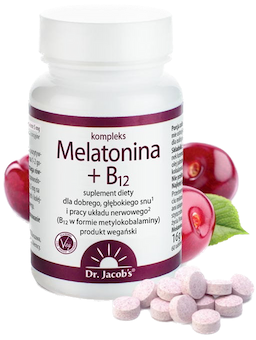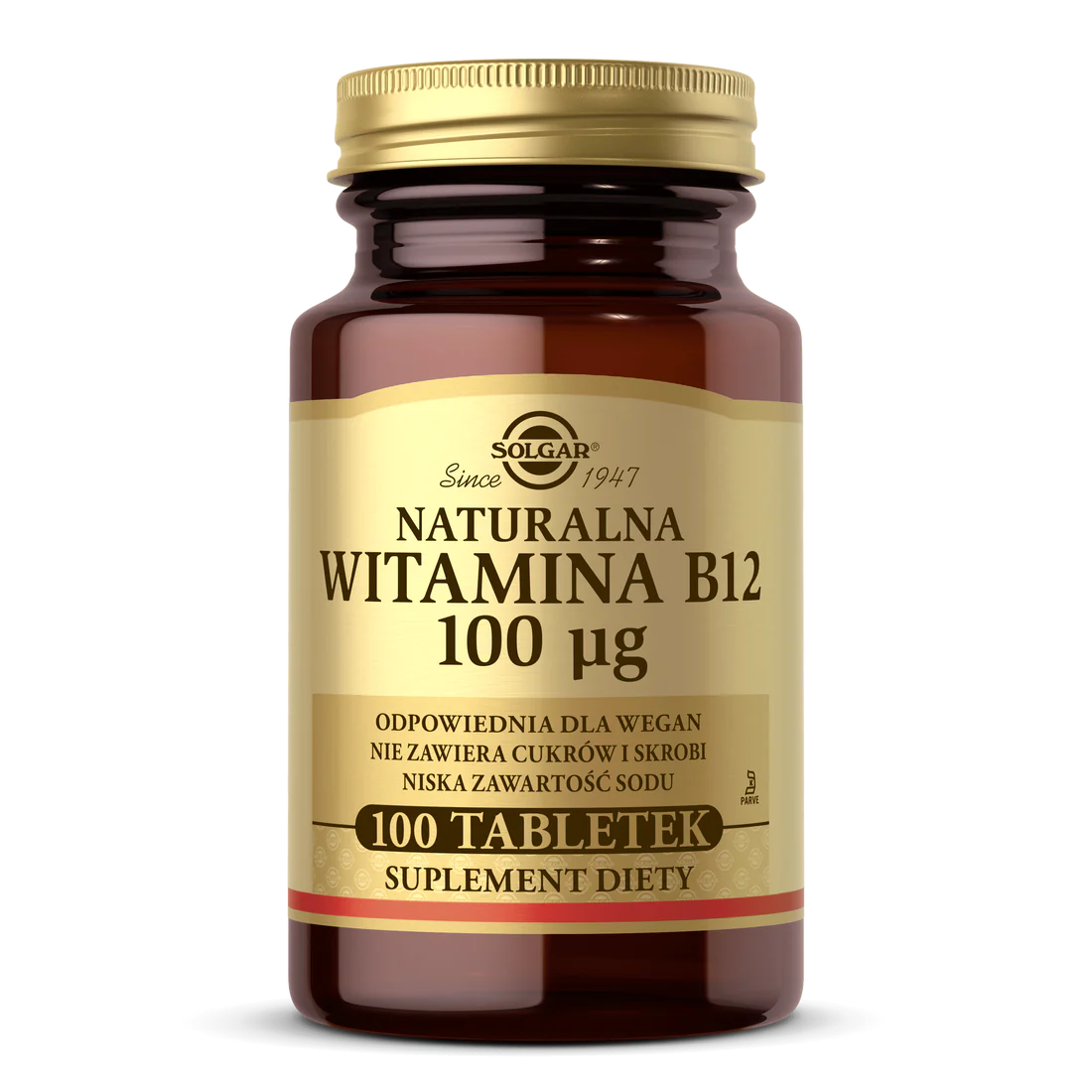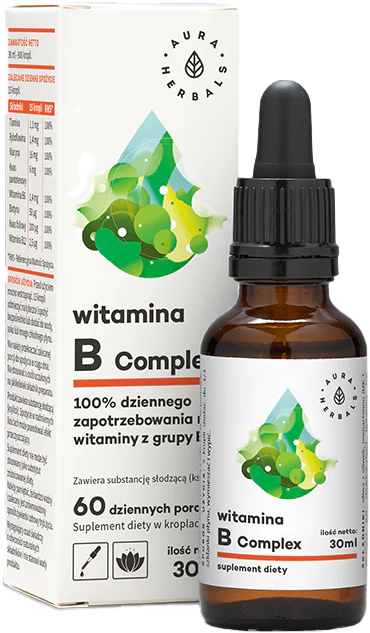Vitamin B12 - where it occurs in the diet and in products [table].
Find out where vitamin B12 is found and which products will provide you with it.


Learn more about our editorial process
.

Learn more about our editorial process
.

Learn more about our editorial process
.

Learn more about our editorial process
.![Vitamin B12 - where it occurs in the diet and in products [table].](https://cdn-resources.natu.care/uploads/1/balanced_diet_nutrition_healthy_eating_concept_food_sources_rich_vitamin_b12_cobalamin_kitchen_table_1_7323c41bd3.jpg)
Why you can trust us
Articles on Natu.Care are written based on scientific research, data from government websites and other reliable sources. The texts are written in cooperation with doctors, nutritionists and other health and beauty experts. Articles are reviewed before publication and during significant updates.
.Learn more about our editorial process
.Information about advertisements
Content on Natu.Care may contain links to products from the sale of which we may receive a commission. When creating content, we adhere to high editorial standards and take care to be objective about the products discussed. The presence of affiliate links is not dictated by our partners, and we select the products we review ourselves completely independently.
.Learn more about our terms and Conditions
.Just 100 grams of cooked mussels will provide you with around 1400% of your daily vitamin B12 requirement. It might seem, therefore, that supplementing it in your diet is buttercake.
The reality is somewhat different, however, and deficiency of this vitamin is a common problem. That's why, together with clinical nutritionist Marta Kaczorek we will answer the question of where vitamin B12 is found.
From this article you will learn:
.- Where vitamin B12 is found. .
- How much vitamin B12 you should take each day. .
- Who is particularly at risk of vitamin B12 deficiency.
- Who is at risk of vitamin B12 deficiency.

Odkryj, co dla Twojej urody może zrobić Natu.Care Glow Stories
Skóra, włosy, paznokcie: Glow Stories
Wesprzyj prawidłowy stan skóry, włosów i paznokci i ochroń komórki przed stresem oksydacyjnym!
Sprawdź cenę
Glow Stories to formuła aktywnych składników, które zostały starannie dobrane wedle najnowszych badań naukowych. Znajdziesz w nich biotynę, cynk i miedź pielęgnujące zdrowie włosów i promiennej cery. Ponadto cynk jest odpowiedzialny także za zachowanie zdrowych paznokci. Mądra suplementacja zadba o Twoje piękno od środka.Julia Skrajda, dietetyk kliniczny
See also:
- Vitamin B12
- How to make up vitamin B12 deficiency quickly
- Vitamin B12 deficiency
- What vitamin D is
- Vitamin B1
- Vitamin B2
- Vitamin B3 (niacin)
- Vitamin B5 (pantothenic acid)
- Vitamin B6
- Vitamin B7 (biotin) .
- Vitamin B9 (folic acid) .
- B vitamins
- Vitamin C .
- Vitamin A
- Vitamin D3
- Vitamin E
- Vitamin K
Vitamin B12 - where does it occur?
.
Vitamin B12 is found in animal products such as beef, offal (e.g. liver), shellfish, sardines, tuna, trout or salmon. You will also get it from dairy products such as yoghurt and cheese. Vitamin B12 is also found in eggs, chicken, turkey, enriched yeast, herring, milk and mackereland.
Sources of vitamin B12 - table
.
The content of vitamin B12 varies depending on the specific product. Below you will find some foods and next to them information on how much cobalamin they contain.
Where vitamin B12 is found - table:
. .
|
Product . |
Vitamin B12 content per 100 gand |
|
Meal |
98.9 mcg |
|
Lamb liver . |
85.7 mcg . |
|
Herring |
13 mcg |
|
Tuna |
10.9 mcg |
|
Sardines |
8.94 mcg |
|
Trout |
7.49 mcg |
|
Beef (pork neck) . |
5.89 mcg . |
|
Swiss cheese . |
3.02 mcg |
|
Salmon |
2.8 mcg |
|
Eggs |
1.11 mcg |
|
Soy milk |
0.85 mcg . |
The above values are the vitamin B12 content of the raw product, and this vitamin is reduced by heat treatment..
 .
.
Marta Kaczorekclinical nutritionist and personal trainer
.
In which vegetables is vitamin B12 found?
.
Naturally, vitamin B12 is not found in vegetables. Some algae may contain small amounts of this vitamin, but they are really negligible. Therefore, people on a plant-based diet should pay attention to their vitamin B12 levels in the body.
Many experts suggest that people on a vegan or vegetarian diet take vitamin B12 supplements, or consume products specifically fortified with this vitamin, such as plant milks or yeast.
Plants do not accumulate vitamin B12 and therefore cannot be a source of it.
 .
.
Marta Kaczorekclinical nutritionist and personal trainer
.
Daily vitamin B12 requirements
.
The requirement for vitamin B12 varies according to age. For women, it also changes during pregnancy or lactation. How much vitamin B12 should you take?
.
|
Age . |
Daily requirements for vitamin B12and |
|
0-6 months |
0.4 mcg |
|
7-11 months |
0.5 mcg |
|
1-3 years |
0.9 mcg |
|
4-6 years |
1.2 mcg |
|
7-12 years |
1.8 mcg |
|
> 13 years |
2.4 mcg |
Pregnant women should take 2.6 mcg of vitamin B12 daily, and breastfeeding women - 2.8 mcg.
Dr Jacob's Melatonin + B12

- Active ingredients: melatonin, vitamin B12
- Form: sucking pastilles .
- Dosage: 1 lozenge per day .
- Sufficient for: 60 days .
Product description
Sweet pleasures in the evening are rather forbidden. Well, unless it's cherry lozenges with melatonin and vitamin B12, whichóre going to improve the quality of your sleep.
One tablet in the evening will shorten your sleep time and stop you waking up.
One tablet in the evening will shortenóyour time to fall asleep and stop you waking up during the night. The addition of vitamin B12 will improve the functioning of the nervous system, making you even better rested.
The following tablets will help to improve the quality of your sleep.
Pros and cons
Sweet pleasures in the evening are rather forbidden. Well, unless it's cherry lozenges with melatonin and vitamin B12, whichóre going to improve the quality of your sleep.
One tablet in the evening will shorten your sleep time and stop you waking up.
One tablet in the evening will shortenóyour time to fall asleep and stop you waking up during the night. The addition of vitamin B12 will improve the functioning of the nervous system, making you even better rested.
The following tablets will help to improve the quality of your sleep.
Additional information
Sweet pleasures in the evening are rather forbidden. Well, unless it's cherry lozenges with melatonin and vitamin B12, whichóre going to improve the quality of your sleep.
One tablet in the evening will shorten your sleep time and stop you waking up.
One tablet in the evening will shortenóyour time to fall asleep and stop you waking up during the night. The addition of vitamin B12 will improve the functioning of the nervous system, making you even better rested.
The following tablets will help to improve the quality of your sleep.
User review
Sweet pleasures in the evening are rather forbidden. Well, unless it's cherry lozenges with melatonin and vitamin B12, whichóre going to improve the quality of your sleep.
One tablet in the evening will shorten your sleep time and stop you waking up.
One tablet in the evening will shortenóyour time to fall asleep and stop you waking up during the night. The addition of vitamin B12 will improve the functioning of the nervous system, making you even better rested.
The following tablets will help to improve the quality of your sleep.
SOLGAR natural vitamin B12

- Active ingredients: vitamin B12
- Form: tablets .
- Packaging: 100 tablets .
- Dose: 1 tablet daily .
- Sufficient for: 100 days .
Product description
The dietary supplement is a source of valuable vitamin B12 in a form that is easily absorbed by humans - cyanocobalamin. This biologically active form of vitamin B12 has many very important protective functions for the body.
Vitamin B12 supports the functioning of the immune system. It also contributes to reducing feelings of fatigue and tiredness. Its important function is also to take part in the metabolism of homocysteine, an amino acid thatós naturally formed in the human body.
Vitamin B12 is a very important protective function.
Pros and cons
The dietary supplement is a source of valuable vitamin B12 in a form that is easily absorbed by humans - cyanocobalamin. This biologically active form of vitamin B12 has many very important protective functions for the body.
Vitamin B12 supports the functioning of the immune system. It also contributes to reducing feelings of fatigue and tiredness. Its important function is also to take part in the metabolism of homocysteine, an amino acid thatós naturally formed in the human body.
Vitamin B12 is a very important protective function.
Additional information
The dietary supplement is a source of valuable vitamin B12 in a form that is easily absorbed by humans - cyanocobalamin. This biologically active form of vitamin B12 has many very important protective functions for the body.
Vitamin B12 supports the functioning of the immune system. It also contributes to reducing feelings of fatigue and tiredness. Its important function is also to take part in the metabolism of homocysteine, an amino acid thatós naturally formed in the human body.
Vitamin B12 is a very important protective function.
User review
The dietary supplement is a source of valuable vitamin B12 in a form that is easily absorbed by humans - cyanocobalamin. This biologically active form of vitamin B12 has many very important protective functions for the body.
Vitamin B12 supports the functioning of the immune system. It also contributes to reducing feelings of fatigue and tiredness. Its important function is also to take part in the metabolism of homocysteine, an amino acid thatós naturally formed in the human body.
Vitamin B12 is a very important protective function.
Aura Herbals Vitamin B Complex drops
Product description
Vegan drops with a complex of B vitamins. A daily serving covers 100% of the requirement for these vitamins. B vitamins are important for the proper functioning of the body, especially for the nervous system, metabolism and energy production.
Pros and cons
Vegan drops with a complex of B vitamins. A daily serving covers 100% of the requirement for these vitamins. B vitamins are important for the proper functioning of the body, especially for the nervous system, metabolism and energy production.
Additional information
Vegan drops with a complex of B vitamins. A daily serving covers 100% of the requirement for these vitamins. B vitamins are important for the proper functioning of the body, especially for the nervous system, metabolism and energy production.
What are the symptoms of vitamin B12 deficiency?
.
Vitamin B12 deficiency can lead to a number of health problems that can be really dangerous in the long term. What symptoms indicate a lack of this vitamin in the bodyand?
- Fatigue and lack of energy. This is one of the most common symptoms of vitamin B12 deficiency - it is crucial for the production of red blood cells, which supply oxygen to all organs.
- Weakness and muscle aches. These symptoms occur when the body does not produce enough oxygen due to low red blood cell levels.
- Memory problems. Vitamin B12 is crucial for brain health, so a deficiency can lead to memory and concentration problems.
- Convulsions or tingling. May be caused by nerve damage due to vitamin B12 deficiency.
- Dizziness and dizziness. These occur when the body produces less oxygen than it needs, which is often linked to low vitamin B12 levels. .
Who is at particular risk of vitamin B12 deficiency?
.
Vitamin B12 deficiency is quite common, especially in certain groups of people. It most commonly affects seniors, vegans or vegetarians, and people suffering from certain health conditions. Why?
Seniors
Vegans and vegetarians
Vegetarians.
|
Group of people . |
Why are they at risk of B12 deficiency?and |
|
Seniors |
The body's ability to absorb vitamin B12 naturally declines with age. Studies suggest that up to 30% of people over 50 may be vitamin B12 deficient. |
|
Vegans and vegetarians |
Vitamin B12 is mainly found in animal products such as meat, eggs and dairy. Therefore, people who eliminate or limit their intake of these products may be at risk of a deficiency of this nutrient in their diet. |
|
Persons with gastrointestinal diseases |
|
| . |
Diseases such as celiac disease or Crohn's disease can have a bad effect on the mucosa of the gastrointestinal tract, making it difficult to absorb vitamin B12. |
|
Patients after bariatric surgery . |
These operations, e.g. carried out for obesity reasons, lead to a reduction in stomach capacity or the omission of part of the gastrointestinal tract, resulting in difficulties in the absorption of vitamins, including B12. |
|
People with diabetes type 2 . |
The problem stems from long-term use of drugs containing metformin. Studies report that sick people taking this drug have significantly lower levels of vitamin B12 compared to the control group. |
By switching to a vegan diet, for a period of about 2 years, we are protected against vitamin B12 deficiency, as the body uses the stores we have gained so far.
.
 .
.
Marta Kaczorekclinical nutritionist and personal trainer
.
.
Is it worth supplementing with vitamin B12?
.
Supplementation of vitamin B12 may be essential for many people, especially those at risk of vitamin B12 deficiency - seniors, vegans and vegetarians, and patients with certain gastrointestinal health problems.
Vitamin B12 deficiency can lead to megaloblastic anaemia, nervous system damage, depression, dizziness and fatigue, and supplementation can help prevent these problemsand.
.
Always, however, it is important to remember that supplementation of any ingredient should be deliberate. Therefore, before starting to take vitamin B12, it's a good idea to consult your doctor to recommend the right dose and monitor potential side effects. Also, do not forget that supplementation is not a substitute for a balanced and varied diet.
Can you overdose on vitamin B12?
.
Yes, it is possible to overdose on vitamin B12. While there are no studies that have documented cases of people leading to an overdose of this nutrient by diet alone, there is no shortage of work by researchers that confirms that supplementation is not always beneficial.
Several studies have documented cases of people leading to an overdose of this nutrient by diet alone.
Some studies suggest that excess vitamin B12 is indicative of disease, such as kidney failure. Other work has shown that high levels of vitamin B12 in the body lead to acneand.
Mostly, these studies have focused on taking vitamin B12 in the form of injections rather than supplementsand. Nevertheless, when taking any supplements, do not exceed the manufacturer's recommendations.
How does vitamin B12 work?
.
Vitamin B12 is essential for the proper functioning of the body. It acts on many levels, affecting the production of red blood cells, the functioning of the nervous system and metabolism.
- Red blood cell production. Vitamin B12 plays a key role in the production of red blood cells. Its deficiency can lead to megaloblastic anaemia - a dangerous condition that often requires specialist treatmentand. .
- Functioning of the nervous system. Vitamin B12 is involved in maintaining the normal structure and function of neurons. Furthermore, it is involved in the production of myelin, the substance that surrounds and insulates nerve fibres, which enables the rapid transmission of signals in the bodyand. .
- Metabolism. Cobalamin is one of the key enzyme co-factors that help in the metabolism of amino acids and the conversion of homocysteine to folate. In this way, it participates in the metabolism ofand. .
- DNA production. Vitamin B12 is important in the proper replication of DNA. Here it works synergistically with vitamin B9 (folic acid)and.
- Heart health. By affecting the metabolism of homocysteine, cobalamin may counteract its harmful effects on the cardiovascular system, such as increased risk of coronary heart diseaseand. .
- Energy and vitality. Vitamin B12 is an integral part of cellular metabolism, helping to convert the carbohydrates, fats and proteins consumed into the energy the body needsand. .
See also:
- Vitamin D3 - which is the best? .
- Vitamin D3 drops
- Vitamin D overdose
- Maximum dose of vitamin D .
- Vitamin D deficiency .
- Vitamin D - dosage .
- Vitamin D3K2
- ADEK vitamins .
- Pregnancy vitamins
- Vitamins for men
- Best multivitamin
- Vitamin A+E
- Biotin for hair
- Coenzyme Q10
Summary
.
- Vitamin B12 is found in animal products such as beef, offal, shellfish, fish, dairy, eggs and enriched yeast.
- Vitamin B12 is found in animal products such as beef, offal, shellfish, fish, dairy, eggs and enriched yeast.
- You will not find vitamin B12 in vegetables; vegetarians and vegans often need to use supplements. .
- The daily requirement of vitamin B12 for adults is 2.5 mcg; for infants, 0.8 mcg. .
- Vitamin B12 deficiency can lead to fatigue, muscle weakness, memory problems, shortness of breath, and dizziness.
- Senior citizens may be more likely to suffer from vitamin B12 deficiency.
- Seniors, vegans, vegetarians and people with gastrointestinal health problems are most at risk of vitamin B12 deficiency.
- Seniors, vegans, vegetarians and people with gastrointestinal health problems are most at risk of vitamin B12 deficiency.
- Vitamin B12 is essential for the production of red blood cells, the normal functioning of the nervous system and metabolism.
FAQ
.Vitamin B6 and B12 - where do they occur?
.Vitamin B6 is found in foods such as meat (chicken, beef), fish, eggs, sunflower seeds, bananas or avocados. vitamin B12 on the other hand, it is mainly present in animal products - for example beef, offal such as liver, fish (e.g. sardines, tuna), eggs, dairy products or chicken.
.Do pregnant women have a greater need for vitamin B12?
.Yes, pregnant women may need higher amounts of vitamin B12. This is due to the increasing needs of the mother's body as well as the developing foetus. The recommended dose for pregnant women is 2.6 mcg per day, and up to 2.8 mcg for lactating mothers.
During pregnancy, however, never take supplements on your own without consulting your doctor.
What are the effects of long-term vitamin B12 deficiency?
.Long-term vitamin B12 deficiency can lead to serious health problems, including neuropathy, mental disorders and megaloblastic anaemia. Neuropathy can manifest as tingling, balance disorders and even mental changes. In the case of anaemia, sufferers may experience severe fatigue, shortness of breath or pallor.
Does vitamin B12 help maintain healthy hair and skin?
.Although vitamin B12 is not directly linked to skin and hair health, a deficiency can lead to various dermatological problems. Insufficient vitamin B12 can result in skin hyperpigmentation, nail spots, changes in hair texture and whitish discolouration of the skin, especially on hands and feet.
Can taking high doses of vitamin B12 improve my energy?
.Vitamin B12 is important for metabolism and energy production in the body. However, supplementation with more vitamin B12 will not necessarily improve energy levels unless a person is deficient. In this case, specific doses should be recommended by a doctor.
Does vitamin B12 affect mood and well-being?
.Yes, vitamin B12 is crucial for mental health. Its deficiency can lead to depression, anxiety and other mood disorders. In such cases, supplementation can help improve mood, but this should always be consulted with your doctor.
Are people on a gluten-free diet at greater risk of vitamin B12 deficiency?
.People on a gluten-free diet are not automatically at risk of vitamin B12 deficiency, provided their diet is balanced and contains adequate amounts of nutrients.
.
Sources
.See all
.Al Amin, A. S. M., & Gupta, V. (2023). Vitamin B12 (Cobalamin). In StatPearls. StatPearls Publishing. http://www.ncbi.nlm.nih.gov/books/NBK559132/
Almoallim, H., Mehdawi, F. S., Cheikh, M. M., Al-dhaheri, F., & Aqeel, A. M. (2016). Reversible Vitamin B12 Deficiency Presenting with Acute Dementia, Paraparesis, and Normal Hemoglobin. Case Reports in Neurological Medicine, 2016, e4301769. https://doi.org/10.1155/2016/4301769
Al-Musharaf, S., McTernan, P. G., Hussain, S. D., Aleisa, K. A., Alnaami, A. M., Wani, K., Saravanan, P., & Al-Daghri, N. (2021). Prevalence and Indicators of Vitamin B12 Insufficiency among Young Women of Childbearing Age. International Journal of Environmental Research and Public Health, 18(1), Article 1. https://doi.org/10.3390/ijerph18010001
FoodData Central. (n.d.-a). Retrieved December 13, 2023, from https://fdc.nal.usda.gov/fdc-app.html#/food-details/173424/nutrients
FoodData Central. (n.d.-b). Retrieved December 13, 2023, from https://fdc.nal.usda.gov/fdc-app.html#/food-details/746767/nutrients
FoodData Central. (n.d.-c). Retrieved December 13, 2023, from https://fdc.nal.usda.gov/fdc-app.html#/food-details/171265/nutrients
FoodData Central. (n.d.-d). Retrieved December 13, 2023, from https://fdc.nal.usda.gov/fdc-app.html#/food-details/1097542/nutrients
FoodData Central. (n.d.-e). Retrieved December 13, 2023, from https://fdc.nal.usda.gov/fdc-app.html#/food-details/175168/nutrients
FoodData Central. (n.d.-f). Retrieved December 13, 2023, from https://fdc.nal.usda.gov/fdc-app.html#/food-details/172004/nutrients
FoodData Central. (n.d.-g). Retrieved December 13, 2023, from https://fdc.nal.usda.gov/fdc-app.html#/food-details/575722/nutrients
FoodData Central. (n.d.-h). Retrieved December 13, 2023, from https://fdc.nal.usda.gov/fdc-app.html#/food-details/173707/nutrients
FoodData Central. (n.d.-i). Retrieved December 13, 2023, from https://fdc.nal.usda.gov/fdc-app.html#/food-details/173368/nutrients
FoodData Central. (n.d.-j). Retrieved December 13, 2023, from https://fdc.nal.usda.gov/fdc-app.html#/food-details/175139/nutrients
FoodData Central. (n.d.-k). Retrieved December 13, 2023, from https://fdc.nal.usda.gov/fdc-app.html#/food-details/171975/nutrients
FoodData Central. (n.d.-l). Retrieved December 13, 2023, from https://fdc.nal.usda.gov/fdc-app.html#/food-details/172533/nutrients
Guéant, J.-L., Guéant-Rodriguez, R.-M., & Alpers, D. H. (2022). Vitamin B12 absorption and malabsorption. Vitamins and Hormones, 119, 241-274. https://doi.org/10.1016/bs.vh.2022.01.016
Office of Dietary Supplements-Vitamin B12. (n.d.). Retrieved December 13, 2023, from https://ods.od.nih.gov/factsheets/VitaminB12-HealthProfessional/
Sobczynska-Malefora, A., Delvin, E., McCaddon, A., Ahmadi, K. R., & Harrington, D. J. (2021). Vitamin B12 status in health and disease: A critical review. Diagnosis of deficiency and insufficiency - clinical and laboratory pitfalls. Critical Reviews in Clinical Laboratory Sciences, 58(6), 399-429. https://doi.org/10.1080/10408363.2021.1885339
.
Editorials
Meet the team



Vitamin PP also known as niacin or vitamin B3 supports the proper functioning of the body.
![What is NMN? Effects, effects, side effects [supplements].](https://cdn-resources.natu.care/uploads/1/science_background_with_molecule_atom_abstract_structure_science_medical_background_3d_illustration_1_a5ec4d9cec.jpg)
Everything you want to know about NMN: properties, effects, safety and expert opinions.

See what using vitamin C on your face gives you and what to keep in mind when including it in your skincare routine.

